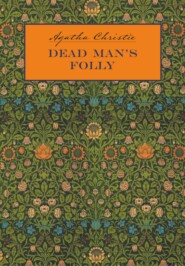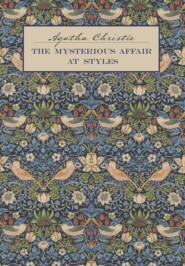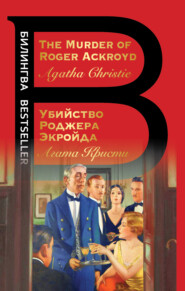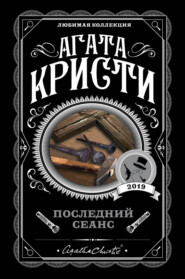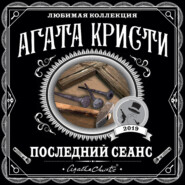По всем вопросам обращайтесь на: info@litportal.ru
(©) 2003-2024.
✖
An Autobiography
Настройки чтения
Размер шрифта
Высота строк
Поля
The question was unanswerable, but such was my brother’s fascination for me that I could not keep away. He was at an age when he was highly scornful of kid sisters, and found me a thorough nuisance. Sometimes he would be gracious and admit me to his ‘workshop’, where he had a lathe, and would allow me to hold pieces of wood and tools and hand them to him. But sooner or later the scrawny chicken was told to take herself off.
Once he so highly favoured me as to volunteer to take me out with him in his boat. He had a small dinghy which he sailed on Torbay. Rather to everyone’s surprise I was allowed to go. Nursie, who was still with us then, was dead against the expedition, being of the opinion that I would get wet, dirty, tear my frock, pinch my fingers and almost certainly be drowned. ‘Young gentlemen don’t know how to look after a little girl.’
My mother said that she thought I had sense enough not to fall over-board, and that it would be an experience. I think also she wished to express appreciation of Monty’s unusual act of unselfishness. So we walked down the town and on to the pier. Monty brought the boat to the steps and Nursie passed me down to him. At the last moment, mother had qualms.
‘You are to be careful, Monty. Very careful. And don’t be out long. You will look after her, won’t you?’
My brother, who was, I imagine, already repenting of his kindly offer, said briefly, ‘She’ll be all right’. To me he said, ‘Sit where you are and keep still, and for goodness sake don’t touch anything.’
He then did various things with ropes. The boat assumed an angle that made it practically impossible for me to sit where I was and keep still as ordered, and also frightened me a good deal, but as we scudded through the water my spirits revived and I was transported with happiness.
Mother and Nursie stood on the end of the pier, gazing after us like figures in a Greek play, Nursie almost weeping as she prophesied doom, my mother seeking to allay her fears, adding finally, probably remembering what a bad sailor she herself was, ‘I don’t expect she’ll ever want to go again. The sea is quite choppy.’
Her pronouncement was true enough. I was returned shortly afterwards, green in the face, having ‘fed the fishes’ as my brother put it, three times. He landed me in high disgust, remarking that women were all the same.
IV
It was just before I was five years old that I first met fear. Nursie and I were primrosing one spring day. We had crossed the railway line and gone up Shiphay lane, picking primroses from the hedges, where they grew thickly.
We turned in through an open gate and went on picking. Our basket was growing full when a voice shouted at us, angry and rough:
‘Wot d’you think you’re doing ‘ere?’
He seemed to me a giant of a man, angry and red-faced.
Nursie said we were doing no harm, only primrosing.
‘Trespassing, that’s what you’re at. Get out of it. If you’re not out of that gate in one minute, I’ll boil you alive, see?’
I tugged desperately at Nursie’s hand as we went. Nursie could not go fast, and indeed did not try to do so. My fear mounted. When we were at last safely in the lane I almost collapsed with relief. I was white and sick, as Nursie suddenly noticed.
‘Dearie,’ she said gently, ‘you didn’t think he meant it, did you? Not to boil you or whatever it was?’
I nodded dumbly. I had visualised it. A great steaming cauldron on a fire, myself being thrust into it. My agonised screams. It was all deadly real to me.
Nursie talked soothingly. It was a way people had of speaking. A kind of joke, as it were. Not a nice man, a very rude, unpleasant man, but he hadn’t meant what he said. It was a joke.
It had been no joke to me, and even now when I go into a field a slight tremor goes down my spine. From that day to this I have never known so real a terror.
Yet in nightmares I never relived this particular experience. All children have nightmares, and I doubt if they are a result of nursemaids or others ‘frightening’ them, or of any happening in real life. My own particular nightmare centred round someone I called ‘The Gunman’. I never read a story about anyone of the kind. I called him The Gunman because he carried a gun, not because I was frightened of his shooting me, or for any reason connected with the gun. The gun was part of his appearance, which seems to me now to have been that of a Frenchman in grey-blue uniform, powdered hair in a queue and a kind of three-cornered hat, and the gun was some old-fashioned kind of musket. It was his mere presence that was frightening. The dream would be quite ordinary–a tea-party, or a walk with various people, usually a mild festivity of some kind. Then suddenly a feeling of uneasiness would come. There was someone–someone who ought not to be there–a horrid feeling of fear: and then I would see him–sitting at the tea-table, walking along the beach, joining in the game. His pale blue eyes would meet mine, and I would wake up shrieking: ‘The Gunman, the Gunman!’
‘Miss Agatha had one of her gunman dreams last night,’ Nursie would report in her placid voice.
‘Why is he so frightening, darling?’ my mother would ask. ‘What do you think he will do to you?’
I didn’t know why he was frightening. Later the dream varied. The Gunman was not always in costume. Sometimes, as we sat round a tea-table, I would look across at a friend, or a member of the family, and I would suddenly realise that it was not Dorothy or Phyllis or Monty, or my mother or whoever it might be. The pale blue eyes in the familiar face met mine–under the familiar appearance. It was really the Gunman.
At the age of four I fell in love. It was a shattering and wonderful experience. The object of my passion was one of the Dartmouth cadets, a friend of my brother’s. Golden-haired and blue-eyed, he appealed to all my romantic instincts. He himself could have had no idea of the emotions he aroused. Gloriously uninterested in the ‘kid sister’ of his friend Monty, he would probably have said, if asked, that I disliked him. An excess of emotion caused me to go in the opposite direction if I saw him coming, and when seated at the dining-table, to keep my head resolutely turned away. My mother took me gently to task.
‘I know you’re shy, dear, but you must be polite. It’s so rude to turn your head away from Philip all the time, and if he speaks to you, you only mutter. Even if you dislike him, you must be polite.’
Dislike him! How little anyone knew. When I think of it now, how supremely satisfying early love can be. It demands nothing–not a look nor a word. It is pure adoration. Sustained by it, one walks on air, creating in one’s own mind heroic occasions on which one will be of service to the beloved one. Going into a plague camp to nurse him. Saving him from fire. Shielding him from a fatal bullet. Anything, indeed, that has caught the imagination in a story. In these imaginings there is never a happy ending. You yourself are burnt to death, shot, or succumb to the plague. The hero does not even know of the supreme sacrifice you have made. I sat on the nursery floor, and played with Tony, looking solemn and priggish, whilst inside my head a glorious exultation swirled in extravagant fancies. The months passed. Philip became a midshipman and left the Britannia. For a short while his image persisted and then dwindled. Love vanished, to return three years later, when I adored hopelessly a tall dark young Army captain who was courting my sister.
Ashfield was home and accepted as such; Ealing, however, was an excitement. It had all the romance of a foreign country. One of its principal joys was its lavatory. It had a splendidly large mahogany lavatory seat. Sitting on it one felt exactly like a Queen on her throne, and I rapidly translated Dicksmistress into Queen Marguerite, and Dickie became her son, Prince Goldie, the heir to the throne. He sat at her right hand on the small circle which enclosed the handsome Wedgwood plug handle. Here in the morning I would retreat, sit bowing, giving audience, and extending my hand to be kissed until summoned angrily to come out by others wishing to enter. On the wall there hung a coloured map of New York City, also an object of interest to me. There were several American prints in the house. In the spare bedroom was a set of coloured prints for which I had a deep affection. One, entitled ‘Winter Sports’, depicted a very cold-looking man on a sheet of ice, dragging up a fish through a small hole. It seemed rather a melancholy sport to me. On the other hand, Grey Eddy, the trotter, was fascinatingly dashing.
Since my father had married the niece of his stepmother (his American father’s English second wife), and since he called her Mother whilst his wife continued to call her Auntie, she was usually known officially as Auntie-Grannie. My grandfather had spent the last years of his life going to and fro between his business in New York and its English branch in Manchester. His had been one of the ‘success stories’ of America. A poor boy from a family in Massachusetts, he had come to New York, been engaged more or less as an office boy, and had risen to be a partner in the firm. ‘Shirtsleeves to Swivel-chair in Three Generations’ had certainly come true in our family. My grandfather made a big fortune. My father, mainly owing to trust in his fellow men, let it dwindle away, and my brother ran through what was left of it like a flash of lightning.
Not long before he died my grandfather had bought a large house in Cheshire. He was a sick man by then, and his second wife was left a widow comparatively young. She lived on in Cheshire for a while, but finally bought a house in Ealing, which was then still practically in the country. As she often said, there were fields all around. However, by the time I came to visit her this seemed hard to believe. Rows of neat houses spread in every direction.
Grannie’s house and garden had a tremendous fascination for me. I divided the nursery into several ‘territories’. The front part had been built out with a bay window and had a gay striped drugget on the floor. This part I christened the Muriel Room (possibly because I had been fascinated by the term Oriel window). The back part of the nursery, covered with a Brussels carpet, was the Dining Hall. Various mats and pieces of linoleum were allocated by me to different rooms. I moved, busy and important, from one room of my house to another, murmuring under my breath. Nursie, peaceful as ever, sat stitching.
Another fascination was Auntie-Grannie’s bed, an immense mahogany four-poster closely hemmed in with red damask curtains. It was a feather bed, and early in the morning I would arrive before being dressed and climb in. Grannie was awake from six o’clock onwards, and always welcomed me. Downstairs there was the drawing-room, crowded to repletion with marquetry furniture and Dresden china, and perpetually shrouded in gloom because of the conservatory erected outside. The drawing-room was only used for parties. Next to the drawing-room was the morning-room, where almost invariably a ‘sewing-woman’ was ensconced. Now that I come to think of it, sewing-women were an inevitable accompaniment of a household. They all had a certain resemblance to each other in that they were usually very refined, in unfortunate circumstances, treated with careful courtesy by the mistress of the house, and the family, and with no courtesy at all by the servants, were sent in meals on trays, and–as far as I can remember–were unable to produce any article of clothing that fitted. Everything was either too tight everywhere or else hung on one in loose folds. The answer to any complaint was usually: ‘Ah yes, but Miss James has had such an unfortunate life.’
So, in the morning-room, Miss James sat and sewed with patterns all around her, and a sewing-machine in front of her.
In the dining-room, Grannie passed her life in Victorian contentment. The furniture was of heavy mahogany with a central table and chairs all round it. The windows were thickly draped with Nottingham lace. Grannie sat either at the table, in a huge leather-backed carver’s chair, writing letters, or else in a big velvet armchair by the fireplace. The tables, sofa, and some of the chairs were taken up with books, books that were meant to be there and books escaping out of loosely tied-up parcels. Grannie was always buying books, for herself and for presents, and in the end the books became too much for her and she forgot to whom she had meant to send them–or else discovered that ‘Mr Bennett’s dear little boy had, unnoticed by her, now reached the age of eighteen and was no longer eligible for The Boys of St. Guldred’s or The Adventures of Timothy Tiger.
An indulgent playmate, Grannie would lay aside the long scratchy-looking letter she was writing (heavily crossed ‘to save notepaper’) and enter into the delightful pastime of ‘a chicken from Mr Whiteley’s’. Needless to say, I was the chicken. Selected by Grannie with appeals to the shopman as to whether I was really young and tender, brought home, trussed up, skewered (yells of delight from my skewered self), put in the oven, done to a turn, brought on the table dished up, great show of sharpening the carving-knife, when suddenly the chicken comes alive and ‘It’s Me!’–grand climax–to be repeated ad lib.
One of the morning events was Grannie’s visit to the store-cupboard which was situated by the side door into the garden. I would immediately appear and Grannie would exclaim, ‘Now what can a little girl want here?’ The little girl would wait hopefully, peering into the interesting recesses. Rows of jars of jam and preserves. Boxes of dates, preserved fruits, figs, French plums, cherries, angelica, packets of raisins and currants, pounds of butter and sacks of sugar, tea and flour. All the household eatables lived there, and were solemnly handed out every day in anticipation of the day’s needs. Also a searching inquiry was held as to exactly what had been done with the previous day’s allocation. Grannie kept a liberal table for all, but was highly suspicious of waste. Household needs satisfied, and yesterday’s provender satisfactorily accounted for, Grannie would unscrew a jar of French plums and I would go gladly out into the garden with my hands full.
How odd it is, when remembering early days, that the weather seems constant in certain places. In my nursery at Torquay it is always an autumn or winter afternoon. There is a fire in the grate, and clothes drying on the high fireguard, and outside there are leaves swirling down, or sometimes, excitingly, snow. In the Ealing garden it is always summer–and particularly hot summer. I can relive easily the gasp of dry hot air and the smell of roses as I go out through the side door. That small square of green grass, surrounded with standard rose-trees, does not seem small to me. Again it was a world. First the roses, very important; any dead heads snipped off every day, the other roses cut and brought in and arranged in a number of small vases. Grannie was inordinately proud of her roses, attributing all their size and beauty to ‘the bedroom slops, my dear. Liquid manure–nothing like it! No one has roses like mine.’
On Sundays my other grandmother and usually two of my uncles used to come to midday dinner. It was a splendid Victorian day. Granny Boehmer, known as Granny B., who was my mother’s mother, would arrive about eleven o’clock, panting a little because she was very stout, even stouter than Auntie-Grannie. After taking a succession of trains and omnibuses from London, her first action would be to rid herself of her buttoned boots. Her servant Harriet used to come with her on these occasions. Harriet would kneel before her to remove the boots and substitute a comfortable pair of woolly slippers. Then with a deep sigh Granny B. would settle herself down at the dining-room table, and the two sisters would start their Sunday morning business. This consisted of lengthy and complicated accounts. Granny B. did a great deal of Auntie-Grannie’s shopping for her at the Army and Navy Stores in Victoria Street. The Army and Navy Stores was the hub of the universe to the two sisters. Lists, figures, accounts were gone into and thoroughly enjoyed by both. Discussions on quality of the goods purchased took place: ‘You wouldn’t have cared for it, Margaret. Not good quality material, very rawny–not at all like that last plum colour velvet.’ Then Auntie-Grannie would bring out her large fat purse, which I always looked upon with awe and considered as an outward and visible sign of immense wealth. It had a lot of gold sovereigns in the middle compartment, and the rest of it was bulging with half-crowns and sixpences and an occasional five shilling piece. The accounts for repairs and small purchases were settled. The Army and Navy Stores, of course, was on a deposit account–and I think that Auntie-Grannie always added a cash present for Granny B’s time and trouble. The sisters were fond of each other, but there was also a good deal of petty jealousy and bickering between them. Each enjoyed teasing the other, and getting the better of her in some way. Granny B. had, by her own account, been the beauty of the family. Auntie-Grannie used to deny this. ‘Mary (or Polly, as she called her) had a pretty face, yes,’ she would say. ‘But of course she hadn’t got the figure I had. Gentlemen like a figure.’
In spite of Polly’s lack of figure (for which, I may say, she amply made up later–I have never seen such a bust) at the age of sixteen a captain in the Black Watch had fallen in love with her. Though the family had said that she was too young to marry, he pointed out that he was going abroad with his regiment and might not be back in England for some time, and that he would like the marriage to take place straight away. So married Polly was at sixteen. That, I think, was possibly the first point of jealousy. It was a love match. Polly was young and beautiful and her Captain was said to be the handsomest man in the regiment.
Polly soon had five children, one of whom died. Her husband left her a young widow of twenty-seven–after a fall from his horse. Auntie-Grannie was not married until much later in life. She had had a romance with a young naval officer, but they were too poor to marry and he turned to a rich widow. She in turn married a rich American with one son.
She was in some ways frustrated, though her good sense and love of life never deserted her. She had no children. However, she was left a very rich widow. With Polly, on the other hand, it was all she could do to feed and clothe her family after her husband’s death. His tiny pension was all she had. I remember her sitting all day in the window of her house, sewing, making fancy pin-cushions, embroidered pictures and screens. She was wonderful with her needle, and she worked without ceasing, far more, I think, than an eight-hour day. So each of them envied the other for something they did not have. I think they quite enjoyed their spirited squabbles. Erupting sounds would fill the ear.
‘Nonsense, Margaret, I never heard such nonsense in my life!’ Indeed, Mary, let me tell you–’ and so on. Polly had been courted by some of her dead husband’s fellow officers and had had several offers of marriage, but she had steadfastly refused to marry again. She would put no one in her husband’s place, she said, and she would be buried with him in his grave in Jersey when her time came.
The Sunday accounts finished, and commissions written down for the coming week, the uncles would arrive. Uncle Ernest was in the Home Office and Uncle Harry secretary of the Army and Navy Stores. The eldest uncle, Uncle Fred, was in India with his regiment. The table was laid and Sunday midday dinner was served.
An enormous joint, usually cherry tart and cream, a vast piece of cheese, and finally dessert on the best Sunday dessert plates–very beautiful they were and are: I have them still; I think eighteen out of the original twenty-four, which is not bad for about sixty odd years. I don’t know if they were Coalport or French china–the edges were bright green, scalloped with gold, and in the centre of each plate was a different fruit–my favourite was then and always has been the Fig, a juicy-looking purple fig. My daughter Rosalind’s has always been the Gooseberry, an unusually large and luscious gooseberry. There was also a beautiful Peach, White Currants, Red Currants, Raspberries, Strawberries, and many others. The climax of the meal was when these were placed on the table, with their little lace mats on them, and finger bowls, and then everyone in turn guessed what fruit their plate was. Why this afforded so much satisfaction I cannot say, but it was always a thrilling moment, and when you had guessed right you felt you had done something worthy of esteem.
After a gargantuan meal there was sleep. Aunti-Grannie retired to her secondary chair by the fireplace–large and rather low-seated. Granny B. would settle on the sofa, a claret-coloured leather couch, buttoned all over its surface, and over her mountainous form was spread an Afghan rug. I don’t know what happened to the uncles. They may have gone for a walk, or retired to the drawing-room, but the drawing-room was seldom used. It was impossible to use the morning-room because that room was sacred to Miss Grant, the present holder of the post of sewing-woman. ‘My dear, such a sad case,’ Grannie would murmur to her friends. ‘Such a poor little creature, deformed, only one passage, like a fowl.’ That phrase always fascinated me, because I didn’t know what it meant. Where did what I took to be a corridor come in?
After everyone except me had slept soundly for at least an hour–I used to rock myself cautiously in the rocking-chair–we would have a game of Schoolmaster. Both Uncle Harry and Uncle Ernest were splendid exponents of Schoolmaster. We sat in a row, and whoever was schoolmaster, armed with a newspaper truncheon, would pace up and down the line shouting out questions in a hectoring voice: ‘What is the date of the invention of needles?’ Who was Henry VIII’s third wife?’ How did William Rufus meet his death?’ What are the diseases of wheat?’ Anyone who could give a correct answer moved up; those correspondingly disgraced moved down. I suppose it was the Victorian forerunner of the quizzes we enjoy so much nowadays. The uncles, I think, disappeared after that, having done their duty by their mother and their aunt. Granny B. remained, and partook of tea with Madeira cake; then came the terrible moment when the buttoned boots were brought forth, and Harriet started on the task of encasing her in them once more. It was agonising to watch, and must have been anguish to endure. Poor Granny B.’s ankles had swollen up like puddings by the end of the day. To force the buttons into their holes with the aid of a button-hook involved an enormous amount of painful pinching, which forced sharp cries from her. Oh! those buttoned boots. Why did anyone wear them? Were they recommended by doctors? Were they the price of a slavish devotion to fashion? I know boots were said to be good for children’s ankles, to strengthen them, but that could hardly apply in the case of an old lady of seventy. Anyway, finally encased and pale still from the pain, Granny B. started her return by train and bus to her own residence in Bayswater.
Ealing at that time had the same characteristics as Cheltenham or Leamington Spa. The retired military and navy came there in large quantities for the ‘healthy air’ and the advantage of being so near London. Grannie led a thoroughly social life–she was a sociable woman at all times. Her house was always full of old Colonels and Generals for whom she would embroider waistcoats and knit bedsocks: ‘I hope your wife won’t object,’ she would say as she presented them. ‘I shouldn’t like to cause trouble!’ The old gentlemen would make gallant rejoinders, and go away feeling thoroughly doggish and pleased with their manly attractions. Their gallantry always made me rather shy. The jokes they cracked for my amusement did not seem funny, and their arch, rallying manner made me nervous.
‘And what’s the little lady going to have for her dessert? Sweets to the sweet, little lady. A peach now? Or one of these golden plums to match those golden curls?’
Pink with embarrassment, I murmured that I would like a peach please. ‘And which peach? Now then, choose.’
‘Please,’ I murmured, ‘I would like the biggest and the bestest.’ Roars of laughter. All unaware, I seemed to have made a joke.






